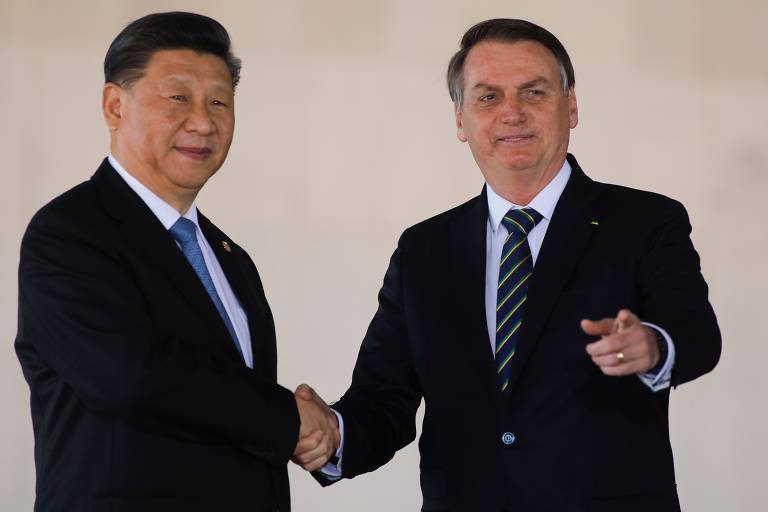RIO DE JANEIRO, BRAZIL – The BRICS Summit on Tuesday, November 17th, was the first meeting, albeit virtual, of President Jair Bolsonaro with China’s President Xi Jinping, after the Brazilian had involved the country and the Chinese Coronavac vaccine in his personal feud with São Paulo Governor João Doria, and pointed to a clear split in the bloc, with veiled criticism on both sides.
In opening his address with an impromptu speech, Bolsonaro quickly mentioned that Brazil was “in tune” with the rest of the countries in the search for a “safe and effective” vaccine for Covid-19, after Xi Jinping emphasized the fact that China is among the countries leading the research for the drug and would be willing to distribute it to the other bloc countries.
The two presidents’ speech clearly marked the differences that have increasingly distanced China and Brazil, despite the strong trade relationship – the Asian country is Brazil’s main export market – and of the BRICS nations – Brazil, China, Russia, India, and South Africa.

Multilateralism, the defense of international institutions such as the United Nations and the World Health Organization, and the control of global warming were among the topics mentioned by the Chinese president, which run in opposition to the positions currently advocated by Brazil.
“We must overcome divisions with unity and work tirelessly to fight the virus,” said Xi Jinping, adding that the pandemic must not be used to build obstacles. “The use of the pandemic to pursue the end of globalization is detrimental to the world,” he said.
Speaking before Bolsonaro, Xi Jinping also advocated that countries maintain the “purposes and principles” of the United Nations Charter and an international system centered on the UN to prevent hegemony and power dispute policies.
For his part, Bolsonaro took an opposite approach. While stating that Brazil was open to investors and international trade, he once again advocated that democracy and the “sovereign prerogatives of countries must be defended.”
“It must be emphasized that the crisis has exposed the centrality of nations for the solution of the problems that affect the world today. We must recognize the reality, that it was not international organizations that overcame the challenge, but rather coordination between our countries,” said Bolsonaro.
The President also advocated the reform of the World Health Organization (W.H.O.) and the World Trade Organization (WTO), two of the points in which he follows U.S. President Donald Trump’s policy. In July, Trump sent a letter to the W.H.O. saying that the U.S. was withdrawing from the organization, in a gesture that Bolsonaro threatened to copy, but did not carry out.
One of Trump’s complaints, reiterated by the Brazilian president, would be alleged excessive influence of China over the W.H.O. While Xi Jinping was defending the Organization, Bolsonaro said: “I have also criticized the politicization of the virus and the purported knowledge monopoly on the part of the W.H.O. from the very beginning, which is in urgent need of a reform”.
The Brazilian president also asked, once again, for a reform of the WTO. “The reform of the WTO is crucial for the resumption of global economic growth. It is necessary to prioritize proposals to reduce subsidies for agricultural goods with as much emphasis as some countries are seeking to promote trade in industrial goods,” he said.
A recurring topic of Brazilian diplomacy, changes in the WTO have reached a deadlock with a block in negotiations imposed by the Trump government’s demands.
With respect to the environment, differences between China and Brazil also emerged. While the Chinese president vowed to convert his country into a carbon-neutral economy by 2060 and advocated the implementation of the Paris Agreement – from which Bolsonaro has also considered withdrawing – the Brazilian president used his address to say that he would expose countries that buy illegally extracted wood from Brazil.
Source: Exame

